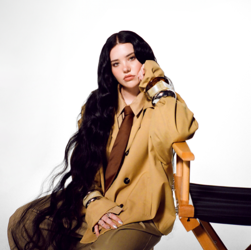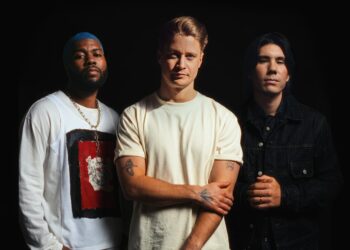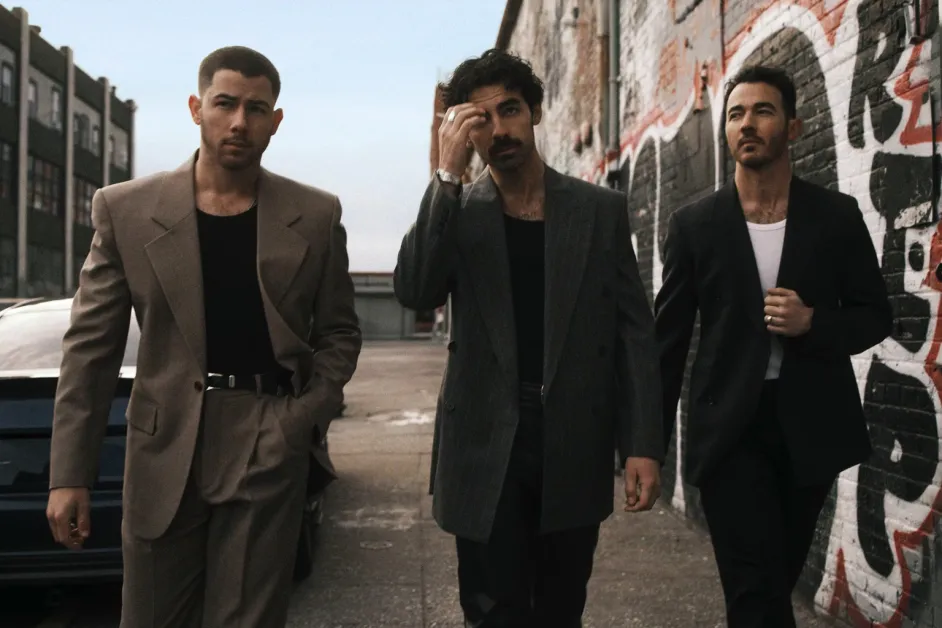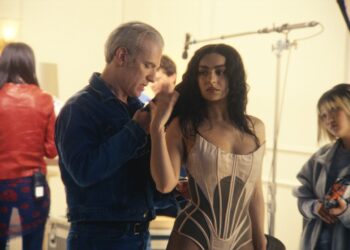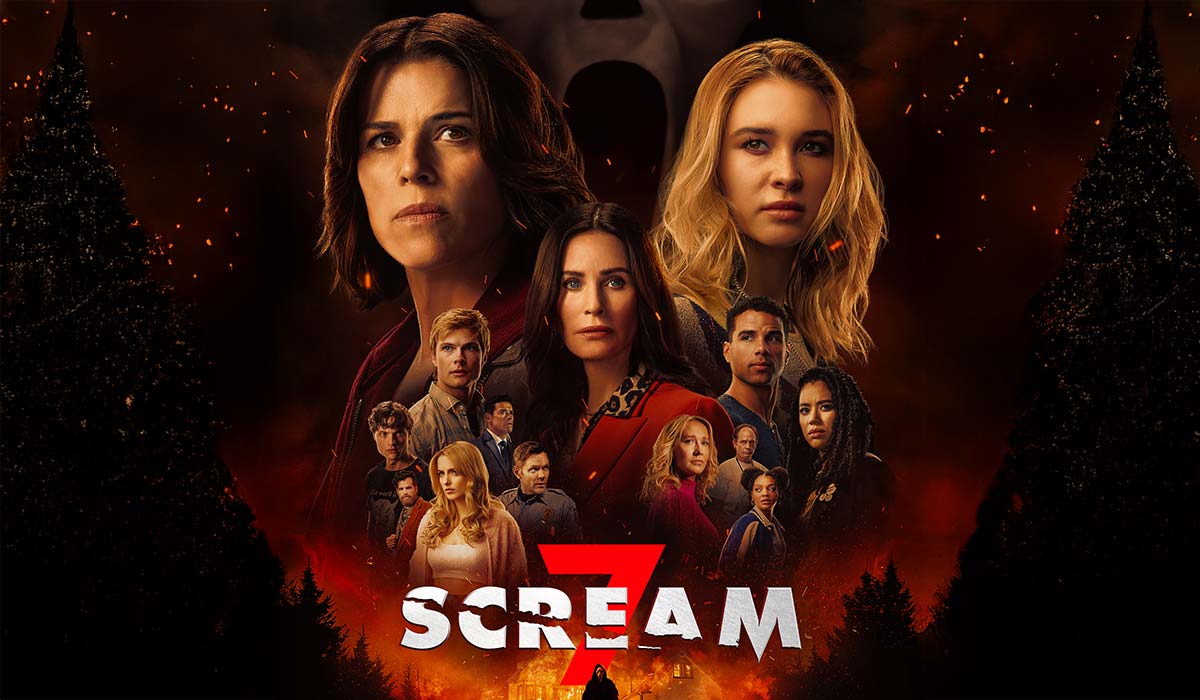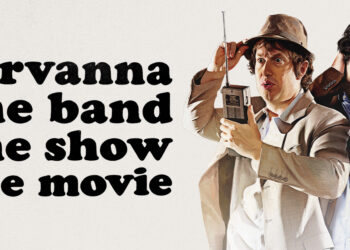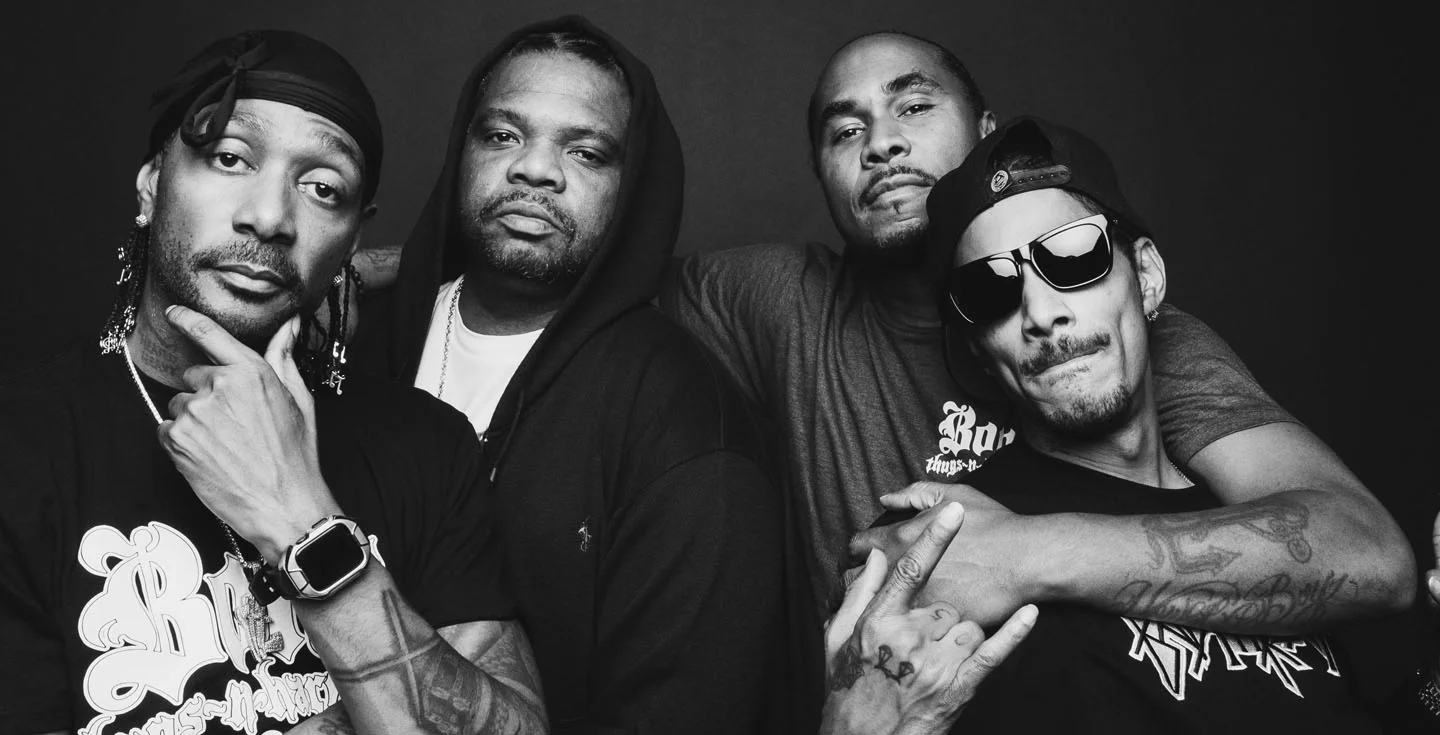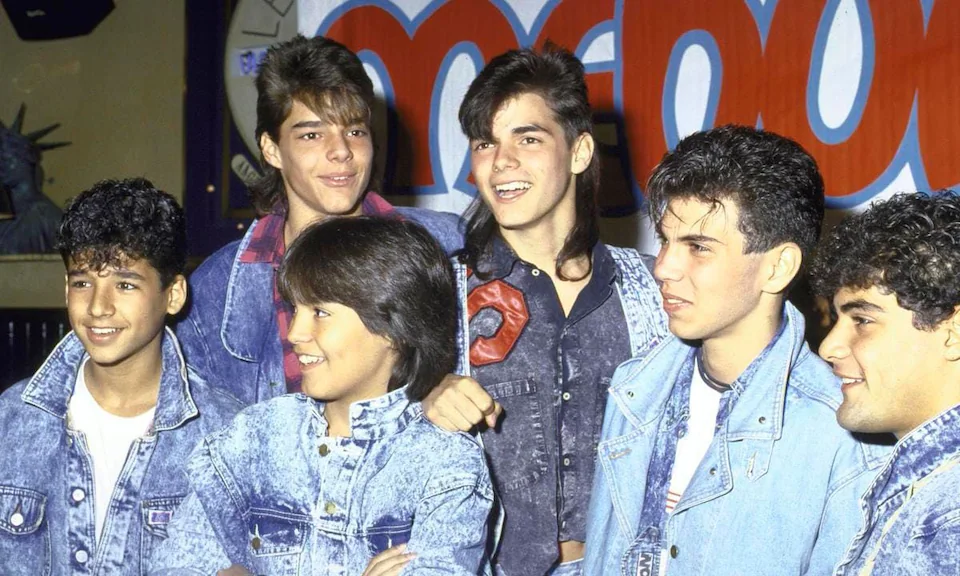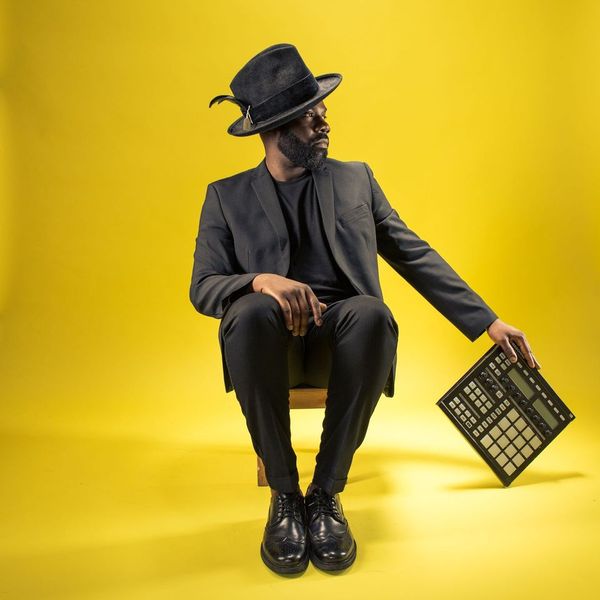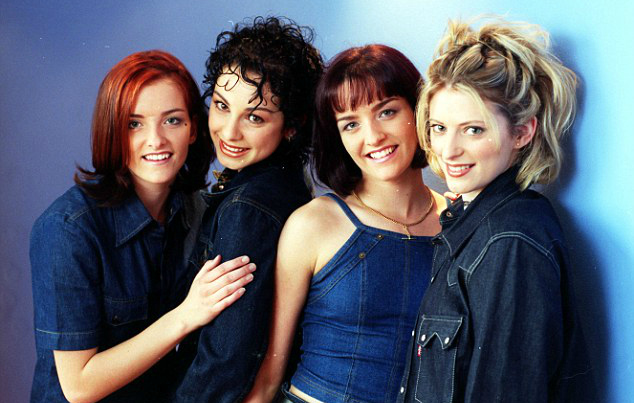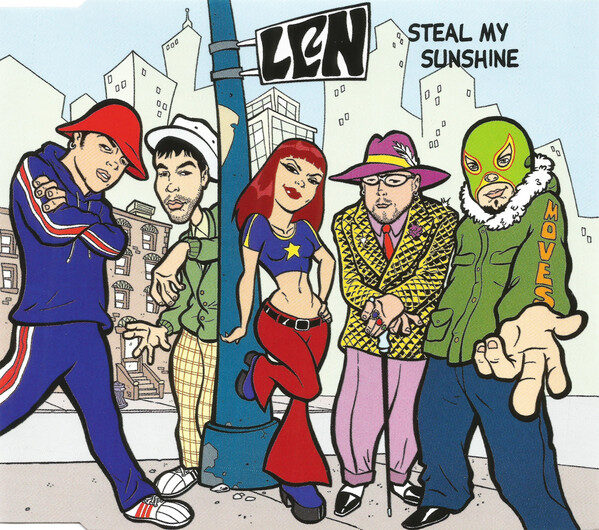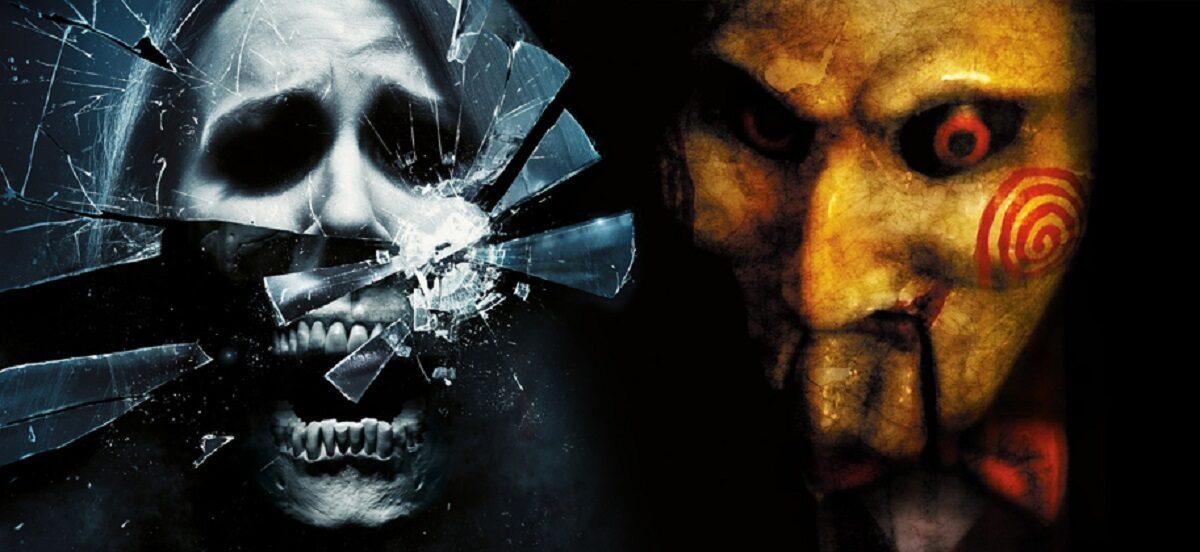We got to speak to Michael ‘Mikey J’ Asante about his music for the hit film Kneecap, which stars Michael Fassbender. The docu-drama focuses on legendary Irish rap group “Kneecap”.
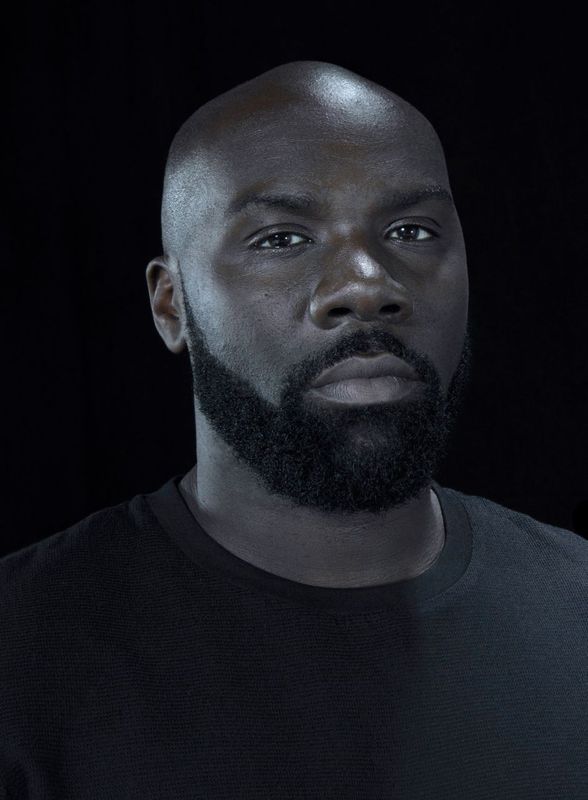
Mikey J welcome to OLC! I got to see Kneecap at a media screening and I loved it. So what was your initial reaction when you were approached to compose the score for “Kneecap”?
Hi! Funny enough, I was approached and initially declined due to another commitment, but in that initial 15 minutes of the cut they sent me, I knew I could add my voice, so I was gutted that I couldn’t get involved. However, fate would turn, and I would get the chance to work on it after all.
How did your personal connection to Ireland and its history influence your approach to the film’s music?
I would say it has always been a part of being British per se and that of all that Ireland and England have been through as two nations, but I wouldn’t say I had a direct connection. However, being a part of a NEW and exciting project that exposes a new look and narrative of Irish culture, especially connected to that of the language and its use in music, allowed me to understand the importance of doing a good job and providing the authenticity it needed and deserved.
Can you describe the process of blending different musical genres, such as DnB, Dancehall, and folk-style guitar, to create the eclectic score for “Kneecap”?
It was like a DJ set, using the right vibes to play in order to hit the narrative moment or emotional energy at the time. It was a lot of fun, and I got to delve into my past with genres like DnB/Jungle and rediscover the sounds that put that all together. As a curator/crate digger, it was an enjoyable pursuit.
What were some of the unique challenges you faced while scoring “Kneecap,” and how did you overcome them?
Time was the main one—I only had 30 days to turn it around. Essentially, I said a number I had to get to before I left the studio each day and stuck to it.
How did you ensure that the music complemented the film’s narrative and the portrayal of the legendary rap group “Kneecap”?
I would say I tried my best not to compromise on what the sounds needed to be doing, then built the tracks from that anchor point. Always ask yourself, would you send this to an artist to rock out on? It’s got to bang.
Could you elaborate on your experimentation with genre blending, particularly on tracks like “Run” and “Dad’s Gone”? What made these tracks stand out to you?
For me, the creative process always begins with experimentation. I approach each project as if I’ve never made music like this before, searching for the unique sound or technique that defines the tone. I believe in losing myself in the process and allowing for happy accidents, which often leads to the most authentic and rewarding results.
A pivotal moment was when I worked on ‘Dad’s Gone.’ I didn’t know how I would take the note of ‘Cowboys and Indians’ and turn it into Hip-Hop, but I relied on my principles as a Hip-Hop practitioner. By resampling country and western guitars, I chipped away at a fresh pattern that still retained a country twang. That’s when I found the ‘pen’ for the film—a guiding sound or technique to build around. Each time I create, I have to find that new ‘pen’ and never lean on what I’ve done before. Every score must have its own identity, and discovering that core is incredibly rewarding.
To get there, I go through what I call “The Well.” It’s a soundpack space on my computer with five folders: Digicrate, Drum Loops, Drums, Sounds, FX, and Vox. I experiment, curate, and collect sounds to place in these folders, pulling from them to develop ideas that grow into full compositions. It’s my version of crate digging, a classic method I’ve adapted into my scoring practice.
This approach is laborious but necessary for me. With each project, I break the ‘pen’ I used and start fresh. Working on Kneecap was no different, but it also required a deep dive into Hip-Hop’s sub-genres, knowing when and what to use to support the narrative. For example, with the track “Run,” I tapped into my 14-year-old self from 1994 to capture the authentic sonics and samples of Jungle music from that time. It was a fun challenge that drew on both nostalgia and knowledge of current trends.
In the end, I don’t just want the score to be heard as part of the film—I want people to feel it first. The score must be inseparable from the scene, with both leading the audience through a shared experience.
How does your experience in live theater and hip-hop dance influence your work in film and TV composition?
I would say it has increased my ability to make material on mass and to make fast decisions on choices. The WELL always keeps me locked into the palette, so the aim is to work fast and evaluate after the fact with a more critical eye (Write Drunk Edit Sonber)
The multiple-genre work allows me to practice these concepts and refine my skill set to suit it. It always remains a process for me as a life work.
What was it like working with Michael Fassbender, the band, and the rest of the cast and crew on this project?
Sadly, I came so late in the game that I didn’t have MUCH direct contact, but it was an honor to be considered as a representative of the score for such a talented team. Rich and I got close as the vision was tied to the music in a BIG way.
Why do you believe experimentation and thinking outside the box are crucial elements in film and TV music composition?
It’s the pursuit of staying fresh, a very Hip-Hop Sensibility. I want to know I am pushing myself into a new space and creating a new Pen for each project. Starting in an experimentation mode sets you on a path into the void. You’re chasing that Aha! moment – a truly rewarding space after taking that leap.
Email:neill@outloudculture.com
Socials: @neillfrazer

